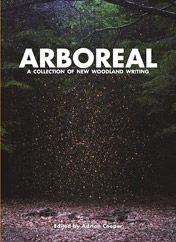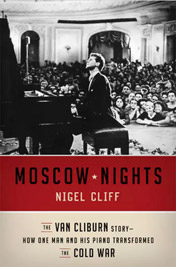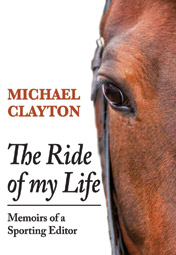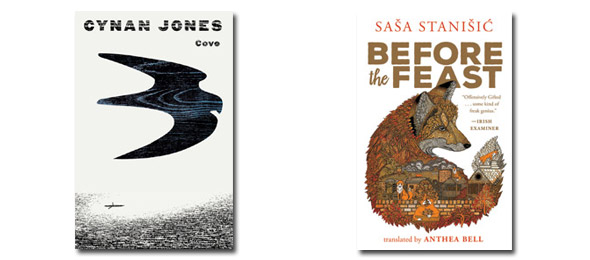Book Reviews: 2 December
OUT NOW
 ARBOREAL: A Collection Of New Woodland Writing edited by Adrian Cooper (Little Toller, £20)
ARBOREAL: A Collection Of New Woodland Writing edited by Adrian Cooper (Little Toller, £20) If you have ever found yourself deep in a wood with the feeling of eyes upon you, read on. That eerie sensation may not be entirely fanciful. Increasingly, mycologists (fungi experts) believe that fungal mycelium, the network of underground filaments that connect forests’ trees and toadstools, do more than just deliver nutrients. They may also serve as a means of communication, an alarm system and even a kind of consciousness.
‘Next time you go for a walk in the woods, reflect on this,’ novelist Paul Kingsnorth urges. ‘Reflect on the possibility that when you walk through a forest, the forest can feel you. That it knows what kind of creature you are.’ Kingsnorth is one of 44 contributors to this paean to Britain’s woods. There are poems from Simon Armitage and Jackie Kay, stories from Ali Smith and Evie Wyld, art from Andy Goldsworthy, and a meditation on woodland birdsong from Jay Griffiths, which is one of the most beautiful things I have read this year.
Each contributor has drawn on a particular patch of woodland for inspiration because, as editor Adrian Cooper reflects, woods have a habit of putting down roots in our memories, getting bound up in our experience of a place. ‘If we have contact with woods, the trees inhabit us,’ he concludes.
Stephanie Cross
 MOSCOW NIGHTS: THE VAN CLIBURN STORY – How One Man And His Piano Transformed The Cold War by Nigel Cliff (HarperCollins, £20)
MOSCOW NIGHTS: THE VAN CLIBURN STORY – How One Man And His Piano Transformed The Cold War by Nigel Cliff (HarperCollins, £20) Based on interviews and recently unearthed evidence from US and Russian archives, Nigel Cliff’s fascinating biography of American classical pianist Van Cliburn makes for compelling reading: it is an enduring study of the power of music and how it managed to unite two warring superpowers.
Documenting Van Cliburn’s rise from humble beginnings to international superstar and beyond, Cliff lingers on the event that made his name: when he entered and won the first international Tchaikovsky competition in Moscow in 1958, charming Russian audiences and momentarily uniting the USA and USSR at a time when fear and hostility between them was at its peak. Cliff’s vivid retelling of the dramatic story and its aftermath will have readers perched on the edge of their seat.
His authentic depiction of life during the cold war transports us into a sinister bygone age, while insightful descriptions provide a rare glimpse of the pianist’s sometimes fragile mindset. For example, we learn how he was plied with sleeping pills to steady his nerves and suffered crippling nosebleeds before performing. There are colourful historical descriptions of Russia’s Cold War politics, but what endures is how one man turned a music competition into an event of global significance. A captivating story that will transfix the reader.
Elizabeth Fitzherbert
BOOK OF THE WEEK
 A memorable run
A memorable runTHE RIDE OF MY LIFE: Memoirs Of A Sporting editor by Michael Clayton (Merlin Unwin Books, £20)
Michael Clayton was editor of Horse & Hound from 1973 to 1996, and a very good editor he was, too. At an early age, he caught the horse bug and, as he states in this superb memoir, ‘There is no more addictive recreation than riding and owning horses and ponies.’
But he did not come from an equestrian family: he was brought up in a two-bedroom bungalow in Bournemouth. Before Horse & Hound, he co-presented Radio 4’s Today programme, reported on the Vietnam War and was deputy news editor of London’s Evening News. Throughout, his great passion was foxhunting: every spare moment would see him dashing from Fleet Street to the shires.
Talk about the ideal job: as editor of Horse & Hound he was paid to go hunting and write up his hunting diary. Along the way we learn about his friendships with horse-world luminaries, including Prince Charles. Clayton also partook in carriage driving with Prince Philip and was entertained by The Queen and The Queen Mother at equestrian events. Not bad for a boy from a Bournemouth bungalow. An essential book for anyone with an interest in horses, but a lovely read for the non-equestrian too, as Clayton writes so well and is not afraid to criticise where he sees fault.
Dominic Prince
COFFEE TABLE BOOK
LIVES OF THE GREAT GARDENERS by Stephen Anderton (Thames & Hudson, £24.95)The lives, work and influences of 40 gardeners from around the world, spanning five centuries, are explored in fascinating detail in this beautifully illustrated book. It is structured by types of garden design, rather than simple chronology. ‘Gardens of ideas’ take in designs with political connotations by the likes of William Kent in the 18th century, ancient Chinese and Japanese gardens, as well as Charles Jencks’s cosmography-inspired contemporary work.

There is formalism and rationalism in ‘Gardens of Straight Lines’; ‘Gardens of Curves’ spearheaded by Lancelot ‘Capability’ Brown, and naturalistic ‘Gardens of Plantmanship’, including Vita Sackville-West’s and contemporary New York-based Ducthman Piet Oudolf’s. An ideal book to keep gardeners inspired over the winter months. JC
PAPERBACKS

COVE by Cynan Jones (Granta Books, £9.99)A man struck by lightning while out fishing in a kayak fights for his life in this intensely vivid novella by the award-winning Welsh author of startlingly original short fiction. As the unnamed protagonist grapples with the elements, his injured body and the odds against him, the ebb and flow of his concussed memory comes into view – and into the immediacy of this story of survival, glimpses of his life come splashing through: the voice of his dead father, whose ashes he was carrying to scatter at a favourite cove; a pregnant wife or lover; childhood fears, dreams and recollections. Jones’s prose – concise, rhythmical and studded with arresting imagery – enacts the rocking motion of a boat at sea. A powerful study of human vulnerability and resilience. Juanita Coulson
BEFORE THE FEAST by Saša Stanišić (Pushkin Press, £8.99)
Charming, funny and poetic, Stanišić’s whimsical new novel (translated from the German) is a modern folk tale. On a moonlit summer’s night, mischief is afoot in the sleepy village of Fürstenfelde – the local ferryman is found dead, bells disappear, wolves prowl, and an artist wanders into the lake in full evening dress and gum boots. Meanwhile, 18-year-old Anna is preparing for the next day’s festival of her namesake. Unfolding over one night, the novel cleverly weaves together the stories of a dozen characters, which intersect in surprising ways. It is an immensely enjoyable and magical read, although the author’s fondness for repetition and leaps between past and present is a little irritating. Rebecca Wallersteiner



